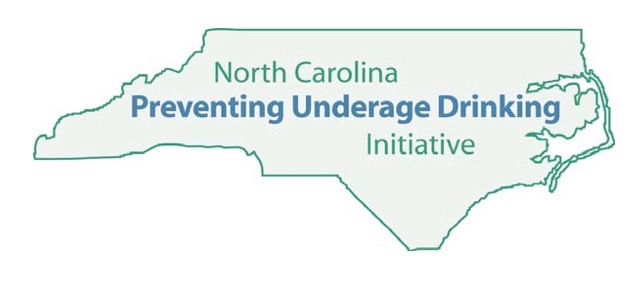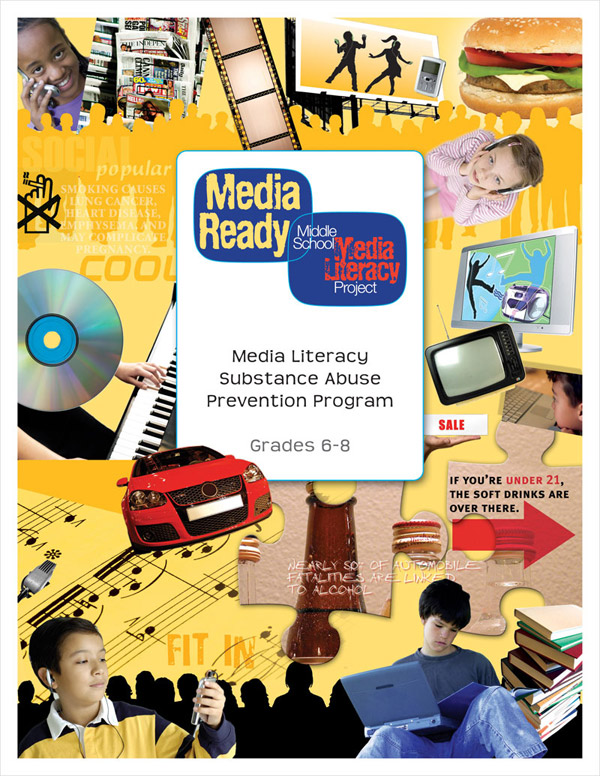Overview of NC-PUDi Community Collaboratives
As part of North Carolina’s Preventing Underage Drinking Initiative (NC-PUDi), the Department of Health and Human Services / Division of Mental Health, Developmental Disabilities and Substance Abuse Services (DMHDDSAS) provides grants to existing Community Collaboratives to support environmental management strategies to prevent the underage use of alcohol. These evidence-based strategies are based on comprehensive community assessments that specifically address underage drinking.
The North Carolina Preventing Underage Drinking Initiative aims to prevent underage consumption and abuse of alcohol through implementation of environmental management strategies aimed at:
- reducing access to,
- changing social norms about, and
- changing policies concerning underage alcohol use.
Scope of Work
The following are the primary environmental management strategies implemented by the Community Collaboratives of the North Carolina Preventing Underage Drinking Initiative.
Most alcohol passes through the hands of an adult before it reaches the hands of a youth. Preventing underage drinking through retail compliance is one of the most effective strategies available. Alcohol purchase surveys, unlike compliance checks, can be performed without the assistance of law enforcement. However, the youth attempting to purchase must be at least 21 years of age.
- Purchase surveys allow Community Collaboratives to:
- assess community needs and collect data on what stores in the community are selling to underage youth
- raise community awareness and build support for efforts to reduce sales to minors
- inform merchants that they are being monitored and motivate them to change practices if non-compliant
- inform law enforcement officials with important information
- measure the impact of prevention strategies so that communities can assess the effectiveness of the strategies they implement.
A community outreach and access assessment, the Alcohol Purchase Surveys are a way for collaboratives to make connections with local retailers, to let them know the community cares about youth, and to encourage them to participate in such alcohol sales training programs as: Be A Responsible Seller (Alcohol Law Enforcement) and Responsible Alcohol Sales Program (Alcoholic Beverages Control Commission).
The Community Collaboratives work with law enforcement to provide mutually reinforcing components of a comprehensive approach to preventing underage alcohol use. As noted in OJJDP’s Strategies to Reduce Underage Alcohol Use (PIRE, 1999a), strategies that limit access to alcohol by youth are some of the most effective and well-researched approaches to preventing underage drinking and the associated problems. For law enforcement to most effectively enforce minimum purchase age laws and prevent the social availability of alcohol to minors there needs to be community support for such law enforcement efforts, community involvement in identifying areas of need, and community assistance and collaboration with law enforcement. This requires active sharing of information and strategizing with law enforcement agencies to enforce minimum purchase age laws.
- BATmobile: The Governor’s Highway Safety Program (GHSP) provides the BATmobile resource to law enforcement partners across North Carolina. BATmobiles are available at no cost to help local agencies conduct effective sobriety checkpoints. Community Collaboratives work with law enforcement to facilitate a coordinated Driving While Impaired (DWI) enforcement effort involving local police departments, sheriffs’ offices, the state highway patrol, and other enforcement agencies. To increase awareness and visibility, local media outlets are notified of the event. In addition, the BATmobile may be used for educational activities and demonstrations directed toward youth. To contact the Governor’s Highway Saftey Program about BATmobile or any other resources, click here: http://www.ncdot.gov/programs/GHSP/contact/
- Shoulder Tap: With law enforcement present to ensure safety, a young person (or group of young people) approaches strangers outside an alcohol retailer to see if they would willingly purchase alcohol for them because they are too young to legally buy. Those that answer “yes”, receive in lieu of money, a card outlining the law and penalty for furnishing alcohol to a minor. Those that refuse to purchase alcohol are presented with a card thanking them for serving their community in a positive manner by refusing to provide alcohol to a minor. This program deters adults from buying alcohol for youth and targets problematic locations.
- Law Enforcement Recognition Program:Law enforcement across the state work daily to prevent underage drinking. Youth, a vital component of the North Carolina Preventing Underage Drinking Initiative, can publicly thank law enforcement officials for their efforts. This can be done in many ways: a formal banquet, a media event, or even just by bringing food to officers at the station or out on location where police officers are working on the job. Law enforcement officers can be given a card or flyer regarding North Carolina’s underage drinking laws as an educational component. This is a unique opportunity for teens and members of the community to thank officers for their hard work and to demonstrate support of efforts to enforce underage drinking laws.
Media Advocacy: As part of their environmental management strategies, collaboratives are involved in a variety of media outreach activities within their communities:
- Youth-created Public Service Announcements
- Op-Ed pieces and Letters to the Editor address some of the following underage drinking issues: myths, cultural norms, the prevalence and negative consequences of binge drinking amongst teenage girls, the effectiveness of the current minimum drinking age law, and the issue of alcohol marketing and youth.
- Town Hall Meetings and Community Briefings
- Press Releases
- Press Conferences
- Radio Interviews
- Direct Mail Campaigns
- Promotions with Local Businesses
Media Literacy: Youth are saturated daily with pro-alcohol media messages. To help youth build the critical thinking and message deconstruction skills necessary to navigate through these messages, Community Collaboratives are working with their to integrate media literacy education into their communities.
- Media Ready is an evidence-based media literacy program for 6th to 8th grade students, designed to delay or prevent substance use, particularly with respect to underage drinking. Through ten lessons of interactive activities, hands-on practice, and group work, students discover the media world around them and develop skills to better understand the messages that are being sent to them. It is intended that students then apply these skills in everyday life to be able to stop, think, and question before accepting media messages. It is desired that students will become active and media savvy consumers who will make more informed choices that promote healthy behaviors and a healthier lifestyle.Media Ready is adaptable to a variety of classroom settings, teaching styles, and student skill levels and a variety of learning environments including schools, after school programs and community settings.
Safe Homes: Many Community Collaboratives are implementing a Safe Homes Program as part of a comprehensive prevention strategy. The Safe Homes Program is a long-standing approach to prevent underage drinking where parents sign a pledge to follow some simple principles that provide a safer environment for their children. The pledge is a one-year commitment, renewed annually. Parents agree to:
- Provide adult supervision for all children visiting their homes.
- Provide a secure storage place for all forms of alcohol in their homes.
- Not allow parties or gatherings in their homes when they are not there.
- Not allow children to drink alcohol in their homes.
- Talk with any Safe Homes parent of a child they personally observe using alcohol or drugs.
The Safe Homes Program is web driven, providing access to resources and contact information.
Youth Advocacy: Youth involvement is a critical part of a comprehensive strategy to preventing underage drinking.
- Take it Back NC is about reclaiming what has been taken from youth due to alcohol. This includes their safety, dignity, culture, good health and future. Take it Back NC is a youth empowerment movement dedicated to preventing underage drinking. Take it Back NC provides youth with the training and resources necessary to implement an effective environmental management strategy for change in their community.
To learn more visit: https://www.facebook.com/takeitbacknc
Community Collaboratives are working to advocate for changes in policies, practices, and conditions that contribute to or support an environment where underage drinking is tolerated and accepted. Collaborative members work to educate parents, law enforcement, elected officials, school administrators, and other community leaders about the problems associated with underage and high-risk drinking. By raising awareness of the issue, collaborative members intend to impact institutional change to prevent youth alcohol use and change the social acceptability of underage drinking.
Talk It Up. Lock It Up! ™ is an innovative strategy to change the physical environment relative to youth access to alcohol in homes. According to national statistics, the most common source of alcohol for those aged 12-14 is taking it from their, or someone else’s home (21%) (SAMHSA, 2008).
The Talk It Up. Lock It Up!™ campaign is a two pronged approach to address the problem of adult providers of alcohol to youth specifically by addressing the susceptibility of youth to take alcohol from their or someone else’s home without the knowledge of the adult caretaker.
The goal of the campaign is to encourage parents and adults in the community to secure and monitor the alcohol in their home. Largely led by youth, communities across North Carolina have had 1000s of pledges signed by parents and adults who agreed to lock up the alcohol in their homes.
Media Ready is an engaging, new research-based media literacy program for 6th to 8th grade students, designed to delay or prevent the onset of substance use, particularly with respect to underage drinking.

